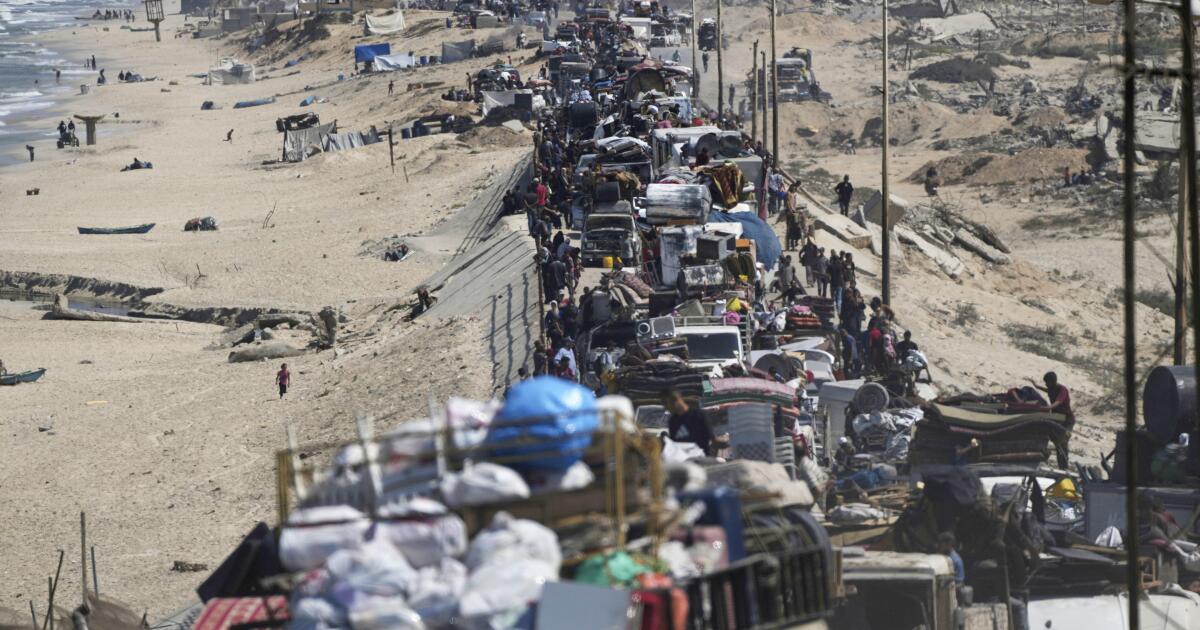Israel is committing genocide in Gaza, a United Nations commission has concluded, accusing Prime Minister Benjamin Netanyahu of inciting killings, blocking aid, displacing civilians, and destroying key infrastructure including a fertility clinic. The UN Commission of Inquiry’s 72-page report was released as Israeli forces launched the main phase of their assault on Gaza City, declaring: “Gaza is burning.”
“Genocide is occurring in Gaza,” said Navi Pillay, the commission’s chair and a former International Criminal Court judge. “Responsibility lies with Israeli authorities at the highest echelons who have orchestrated a genocidal campaign for almost two years, with the specific intent to destroy the Palestinian group in Gaza.”
The findings are likely to bolster South Africa’s genocide case against Israel at the International Court of Justice and provoke fury in Jerusalem, which insists its campaign is lawful self-defence following Hamas’s 7 October 2023 attack that killed 1,200 people and led to 251 hostages being taken.
Since then, around 64,000 Gazans have died, according to the Hamas-run health ministry, and parts of the enclave are officially experiencing famine.
Under the 1948 Genocide Convention, genocide is defined as acts committed “with intent to destroy, in whole or in part, a national, ethnic, racial or religious group.”
The commission found Israel had committed four of the five listed acts: killing; causing serious bodily or mental harm; inflicting life conditions calculated to bring about destruction; and imposing measures to prevent births.
Evidence includes satellite imagery, verified open-source data, and interviews with witnesses, victims and doctors.
Alongside Netanyahu, the report also names Israeli President Isaac Herzog and former defence minister Yoav Gallant.
Ms Pillay, a South African who previously led the Rwanda tribunal, said the parallels were striking.
“When I look at the facts in the Rwandan genocide, it’s very, very similar to this,” she said.
“You dehumanise your victims. They’re animals, and so therefore, without conscience, you can kill them.”
Meanwhile, Israeli troops pushed into Gaza City’s centre in what officials called a decisive assault on Hamas’s last stronghold.
Dozens of homes were destroyed as air strikes and naval bombardment hit the coast. Gaza health officials said at least 24 people were killed overnight, most in Gaza City.
An Israeli security official estimated 320,000 people had fled Gaza City in recent weeks, with around 650,000 still there.
“The IDF strikes with an iron fist at the terrorist infrastructure,” Netanyahu said.
“Our soldiers are fighting bravely to create the conditions for the release of the hostages and the defeat of Hamas.”
Some Israeli commanders have expressed concern, warning the offensive could endanger hostages and become a “death trap” for troops.
According to three Israeli officials, IDF Chief of Staff Herzi Halevi urged Netanyahu on Sunday to pursue a ceasefire.
US Secretary of State Marco Rubio said Washington preferred a diplomatic outcome but must be “prepared for the possibility that’s not going to happen.”
He backed Israel’s demand that Hamas disarm and release all hostages.
Last night, Megan Sutcliffe, regional analyst at the Sibylline strategic risk group, said the genocide ruling was unlikely to change the course of events.
“The routine response from the Israeli government is generally to reject these reports as biased and to query their methodology,” she said.
“It’s also unlikely to have a demonstrable impact on operations within Gaza.”
She added: “We’ve already seen Netanyahu previously claim that Khan Younis and Rafah were Hamas’s last bastions, so some in Israel view this Gaza City focus as disingenuous.
“But others will see that there has been no rocket fire from Hezbollah in Lebanon for almost a year and point to Israel’s success against Iran.
“Some say Israel wants to be loved by the West, but needs to be feared by the Middle East.
”And Netanyahu’s foreign policy is often a balancing act between those two factors.”




